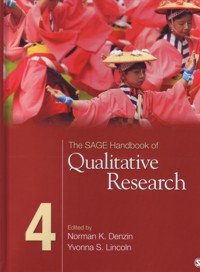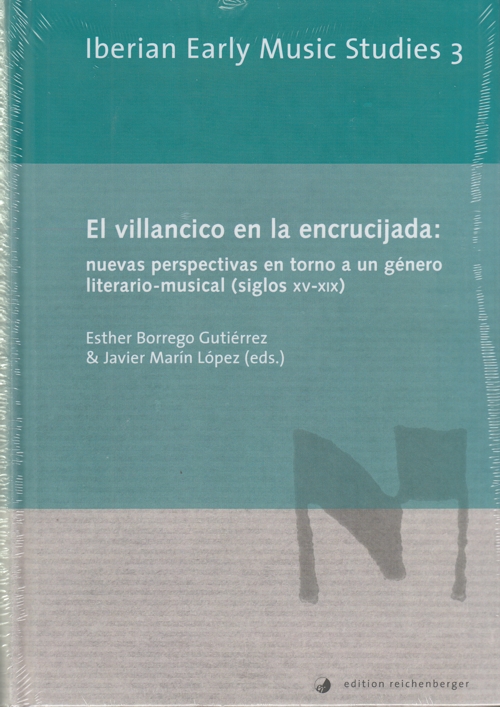
The Sage Handbook of Qualitative Research, Fourth Edition
Denzin, Norman K.
;Lincoln, Yvonna S.
Sage publications. 2011Ficha técnica
- EAN: 9781412974172
- ISBN: 978-1-4129-7417-2
- Editorial: Sage publications
- Fecha de edición: 2011
- Encuadernación: Cartoné
- Dimensiones: 21,5x28
- Idioma: Inglés
- Nº páginas: XVI+766
Agotado
Agotado en la editorialPVP. 180,90€
Añadir a la Lista de deseos
Presenting the state-of-the-art for the theory and practice of qualitative inquiry, thi landmark Handbook has been a publishing phenomenon in the human sciences since it first publicated in 1994. As with earlier editions, the Fourth Edition is virtually a new volume.
Representing the best thinking from top scholars from around the world, the new edition continues the book's tradition of synthesizing an existing literature, defining the present, and shaping the future of qualitative research. The editors and contributors address issues of social justice and examine how people's struggles can inform public issues and in turn be transformed into social policy. Their writings are underpinned by a critical framework, and they are committed to addressing issues of inequality. As with previous editions, their aim is to show how the practices of qualitative research can effect change in the world in positive ways.
CONTENIDO:
Preface (Norman K. Denzin, Yvonna S. Lincoln)
1. Introduction (Norman K. Denzin, Yvonna S. Lincoln)
Part I. Locating the field
2. Revitalizing Universities by reinventing the social sciences: "Bildung" and action research (Morten Levin, Davydd Greenwood)
3. A history of qualitative inquiry in social and educational research (Frederick Erickson)
4. Ethics and politics in qualitative research (Clifford G. Christians)
5. Ethics, research regulations, and critical social science (Gaile S. Cannella, Yvonna S. Lincoln)
Part II. Paradigms and perspectives in contention
6. Paradigmatic controversies, contradictions, and emerging confluences, revisited (Yvonna S. Lincoln, Susann A. Lynham, Egon G. Guba)
7. Feminist qualitative research in the millenium's first decade: developments, challenges, prospects (Virginia Olesen)
8. The sacred and spiritual nature of endaarkened transnational feminist praxis in qualitative research (Cynthia B. Dillard, Chinwe Okpalaoka)
9. Critical pedagogy, and qualitative research: Moving to the bricolage (Joe L. Kincheloe, Peter McLaren, and Shirley R. Steinberg
10. Cultural studies: Performative imperatives and bodily articulations (Michael D. Giardina, Joshua L. Newman)
11. Critical humanism and queer theory: Living with the tensions. Postscript 2011 to Living with the constradictions (Ken Plummer)
12. Asian epistemologies and contemporary social psychological research (James H. Liu)
13. Disability communities: transformative research for social justice (Donna M. Mertens, Martin Sullivan, Hilary Stace)
Part III: Strategies of inquiry
14. The politics and practices of funding qualitative inquiry: Messages about messages about messages (Julianne Cheek)
15. Controversies in mixed methods research (John W. Creswell)
16. Mixed methods research: Contemporary issues in an emerging field (Charles Teddlie, Abbas Tashakkori)
17. Case study (Bent Flyvbjerg)
18. Performance ethnography (Judith Hamera)
19. Braiding narrative ethnography with memoir and creative nonfiction (Barbara Tedlock)
20. The constructionist analytics of interpretative practice (James A. Holstein, Jaber F. Gubrium)
21. Grounded theory methods in social justice research (Kathy Charmaz)
22. In the name of human rights: I say (how) you (should) speak (before I listen) (Antjie Krog)
23. Jazz and the Banyan tree: Roots and riffs on participatory action research (Mary Brydon-Miller, Michael Kral, Patricia Maguire, Susan Noffke, Anu Sabhlok)
24. What is qualitative health research? (Janice M. Morse)
Part IV: Methods of collecting and analyzing empirical materials
25. Narrative inquiry: Still a field in the making
26. Critical arts-based inquiry: the pedagogy and performance of a radical ethical aesthetic (Susan Finley)
27. Oral history (Linda Shopes)
28. Observations on observation: Continuities and challenges (Michael Angrosino, Judith Rosenberg)
29. Visual methodology: toward a more seeing research (Jon Prosser)
30. Performative autoethnography: Critical embodiments and possibilities (Tami Spry)
31. The methods, politics, and ethics of representation in online ethnography (Sarah N. Gatson)
32. Analyzing talk and text (Anssi Peräkylä, Johanna Ruusuvuori)
33. Focus groups: Contingent articulations of pedagogy, politics and inquiry (George Kamberelis, Greg Dimitriadis)
Part V: The art and practice of interpretation, evaluation, and representation
34. Qualitative research, science, and government: Evidence, criteria, policy, and politics (Harry Torrance)
35. Reflections on interpretative adequacy in qualitative research (David L. Altheide, John M. Johnson)
36. Analysis and representation across the continuum (Laura L. Ellingson)
37. Post qualitative research: the critique and the coming after (Elizabeth Adams St. Pierre)
38. Qualitative research and technology: In the midst of a revolution (Judith Davidson, Silvana di Gregorio)
39. The politics of evidence (Norman K. Denzin)
40. Writing into position: Strategies for composition and evaluation (Ronald J. Pelias)
41. Evaluation as a relationally responsible practice (Tineke A. Abma, Guy A. M. Widdershoven)
Part VI: The future of qualitative research
42. Qualitative futures: Where we might go from where we've been (Judith Preissle)
43. Teaching qualitative research (Margaret Eisenhart, A. Susan Jurow)
Epilogue: Toward a "refunctioned ethnography" (Yvonna S. Lincoln, Norman K. Denzin)
Author index
Subject index
About the editors
About the contributors





